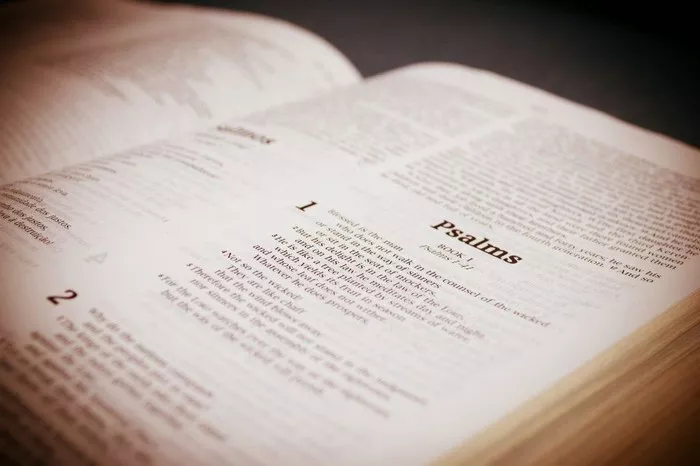In contemporary discussions surrounding women in pastoral leadership roles, the Bible serves as a foundational text that both sparks debate and guides belief systems. The question of whether women should serve as pastors has been a source of theological inquiry and interpretation for centuries. As society evolves, so too does the examination of traditional biblical teachings. In this article, we delve into the scriptural references that pertain to women in pastoral positions and explore the diverse perspectives within the Christian community.
Biblical Foundations: A Historical Perspective
To understand the biblical stance on women pastors, one must navigate through various passages that touch upon leadership roles within the Christian community. A focal point of discussion is often found in the Pauline epistles, where the apostle Paul addresses the roles of men and women in the church. One key passage is 1 Timothy 2:12, where Paul states, “I do not permit a woman to teach or to assume authority over a man; she must be quiet.”
Interpreting this passage involves considering the historical context, cultural nuances, and the broader message of Paul’s writings. Critics argue that Paul’s instructions were specific to the cultural and social context of the time, and thus may not be universally applicable to contemporary church settings.
Cultural Context and Interpretation
Understanding the cultural backdrop against which biblical passages were written is crucial in interpreting their intended meaning. In the first-century Mediterranean world, societal norms and gender roles differed significantly from those in the modern era. Some biblical scholars contend that Paul’s instructions were influenced by the specific challenges faced by the early Christian communities, rather than establishing a universal prohibition against women in pastoral roles.
An alternative interpretation of 1 Timothy 2:12 suggests that Paul’s concerns were rooted in the context of false teachings and disruptive practices in the Ephesian church. In this view, the restriction on women teaching or having authority over men may have been a temporary measure to address specific issues within that community, rather than an eternal decree applicable to all churches throughout history.
Debating Theology: Complementarian vs. Egalitarian Perspectives
Theological debates surrounding women in pastoral roles often revolve around two major perspectives: complementarianism and egalitarianism.
Complementarianism: Embracing Distinct Roles
Complementarians argue that men and women have complementary, yet distinct, roles in the church and family. They believe that certain passages, like 1 Timothy 2:12, establish a divine order wherein men are designated for leadership roles, while women are called to support and complement these roles. Proponents of complementarianism assert that this perspective aligns with the overarching biblical narrative, emphasizing the equality of men and women while recognizing their distinct roles.
Egalitarianism: Affirming Equal Opportunities
Egalitarians, on the other hand, advocate for equal opportunities and responsibilities for both men and women in the church. They assert that passages like Galatians 3:28, which states, “There is neither Jew nor Gentile, neither slave nor free, nor is there male and female, for you are all one in Christ Jesus,” affirm the equal status of men and women in Christ. Egalitarians argue that limiting women from pastoral roles contradicts the essence of this inclusive message and undermines the broader biblical theme of redemption and equality.
Notable Women in the Bible: Examining Leadership Examples
As the debate persists, examining the Bible for instances of women in leadership roles becomes crucial. Numerous women in the Bible held positions of influence and leadership, challenging the notion that women are inherently disqualified from pastoral responsibilities. Examples include Deborah, who served as both a prophetess and judge in Israel (Judges 4-5), and Phoebe, mentioned in Romans 16:1-2 as a deacon and benefactor to many.
These examples provide an alternative narrative to the notion that women are inherently barred from holding leadership roles within the church, offering a nuanced perspective on the complexities of biblical teachings regarding gender roles.
Contemporary Perspectives and Denominational Diversity
The debate over women pastors is not limited to academic circles; it resonates within various Christian denominations, each with its own stance on the issue. Some denominations wholeheartedly embrace the leadership of women in pastoral roles, citing a broader understanding of biblical teachings and cultural evolution. Others, however, adhere to more traditional interpretations, viewing women pastors as incompatible with their understanding of scriptural authority.
While certain denominations have taken progressive steps to ordain women as pastors and bishops, others continue to grapple with the tension between adhering to traditional beliefs and adapting to the changing dynamics of society. The diversity of perspectives within Christianity reflects the ongoing conversation about the interpretation and application of biblical teachings regarding women in pastoral leadership.
Conclusion
The question of women pastors is deeply rooted in the interpretation of biblical passages, historical context, and theological frameworks. As Christians grapple with the complexities of these discussions, it is essential to approach the matter with humility, acknowledging the diversity of perspectives within the body of believers.
While the Bible provides certain passages that seem to restrict women from pastoral roles, it also presents instances of women in leadership positions, challenging rigid interpretations. As the church continues to evolve, so too will the conversation surrounding women in pastoral roles, requiring a thoughtful and prayerful engagement with scripture, tradition, and contemporary insights. Ultimately, the pursuit of unity within the body of Christ necessitates a respectful dialogue that embraces the richness and diversity of biblical teachings on this complex issue.

